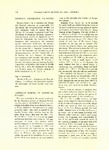| dc.creator | Syropoulou A., Vernadakis N., Papastergiou M., Kourtessis T. | en |
| dc.date.accessioned | 2023-01-31T10:05:25Z | |
| dc.date.available | 2023-01-31T10:05:25Z | |
| dc.date.issued | 2021 | |
| dc.identifier | 10.1016/j.ridd.2021.103964 | |
| dc.identifier.issn | 08914222 | |
| dc.identifier.uri | http://hdl.handle.net/11615/79561 | |
| dc.description.abstract | Background: Although the Rosenberg Self-Esteem Scale (RSES) is the most widely used measure of self-esteem, the evidential basis to confirm the RSES factor validity and reliability in children with intellectual disabilities (ID) has not been previously addressed. The purpose of this study was to evaluate the psychometric properties of the Greek version of the RSES into a sample consisting of primary school students with mild ID, bearing in mind the aspect of multidimensionality. In addition, gender differences were also investigated. Methods: The participants were 103 primary school students with mild ID aged 9–12 years old. Fifty-four (52.4 %) of the participants were boys and forty-nine were girls (47.6 %). Using the LISREL software, six different models of factor structure were estimated. The psychometric properties of the RSES, including internal consistency, content validity, convergent and discriminant validity as well as confirmatory factor analysis, were assessed. Results: The findings of this study provide some preliminary support to the robustness of the bifactor model, with a general self-esteem factor and two method effect factors that capture the direction of positive and negative item wording. Conclusions: Although it is inappropriate to conclude that the results will be extended to all other populations and cultures, it can be assumed that bifactor models, which specify method effects due to wording, fit better than strictly unidimensional or two factor models. © 2021 Elsevier Ltd | en |
| dc.language.iso | en | en |
| dc.source | Research in Developmental Disabilities | en |
| dc.source.uri | https://www.scopus.com/inward/record.uri?eid=2-s2.0-85106310660&doi=10.1016%2fj.ridd.2021.103964&partnerID=40&md5=650f095087d5a8692f22b075da30b936 | |
| dc.subject | Article | en |
| dc.subject | child | en |
| dc.subject | confirmatory factor analysis | en |
| dc.subject | content validity | en |
| dc.subject | controlled study | en |
| dc.subject | convergent validity | en |
| dc.subject | discriminant validity | en |
| dc.subject | elementary student | en |
| dc.subject | female | en |
| dc.subject | Greek (language) | en |
| dc.subject | human | en |
| dc.subject | intellectual impairment | en |
| dc.subject | internal consistency | en |
| dc.subject | major clinical study | en |
| dc.subject | male | en |
| dc.subject | preliminary data | en |
| dc.subject | primary school | en |
| dc.subject | psychometry | en |
| dc.subject | Rosenberg Self-Esteem Scale | en |
| dc.subject | school child | en |
| dc.subject | self esteem | en |
| dc.subject | sex difference | en |
| dc.subject | psychometry | en |
| dc.subject | reproducibility | en |
| dc.subject | school | en |
| dc.subject | self concept | en |
| dc.subject | student | en |
| dc.subject | Child | en |
| dc.subject | Female | en |
| dc.subject | Humans | en |
| dc.subject | Intellectual Disability | en |
| dc.subject | Male | en |
| dc.subject | Psychometrics | en |
| dc.subject | Reproducibility of Results | en |
| dc.subject | Schools | en |
| dc.subject | Self Concept | en |
| dc.subject | Students | en |
| dc.subject | Elsevier Inc. | en |
| dc.title | Psychometric evaluation of the Rosenberg Self-Esteem Scale in primary school students with mild intellectual disability: First evidence | en |
| dc.type | journalArticle | en |


